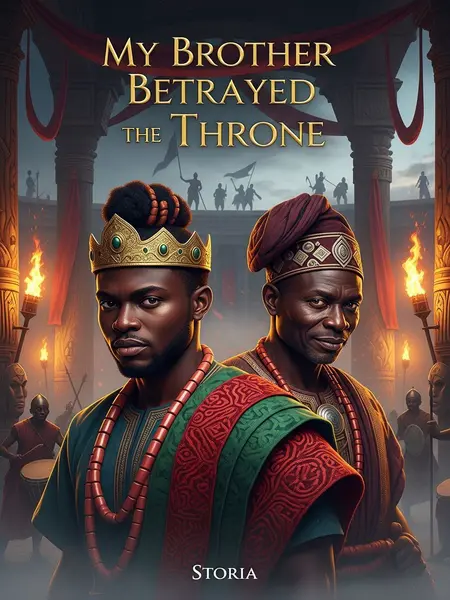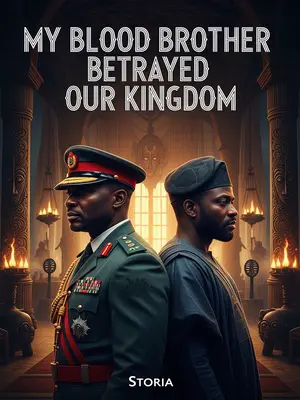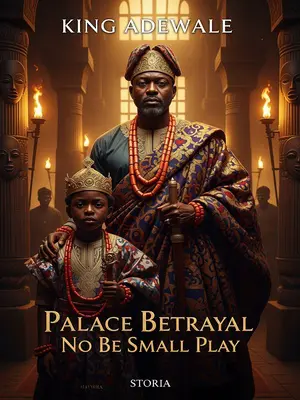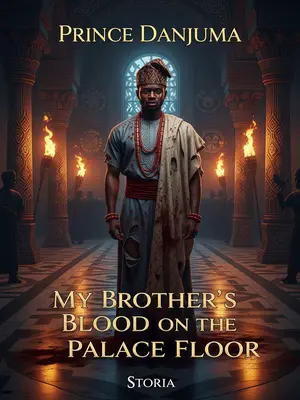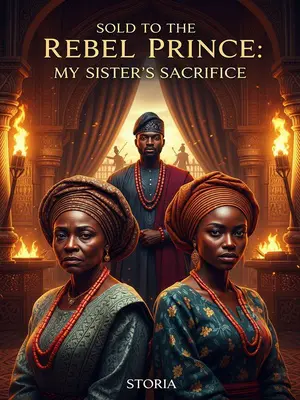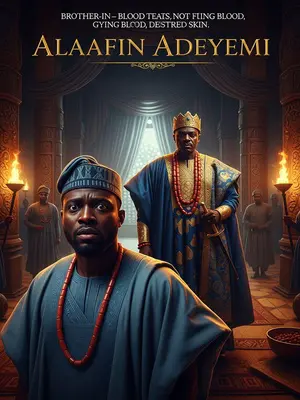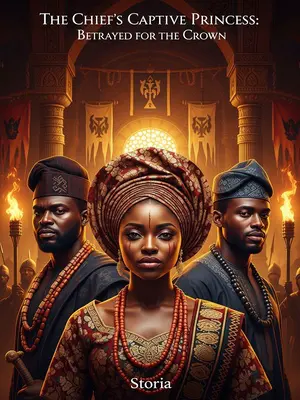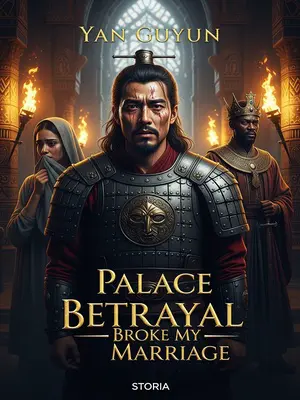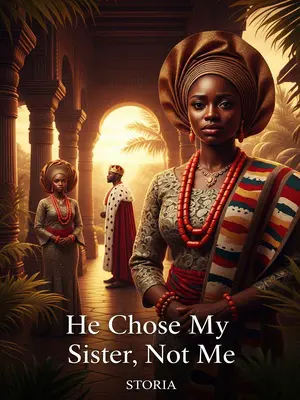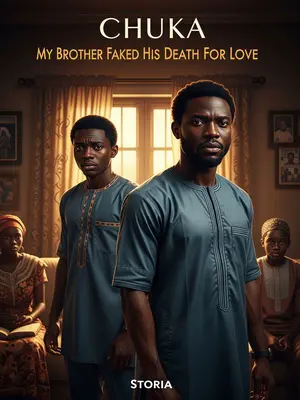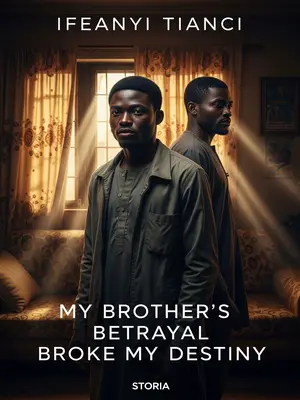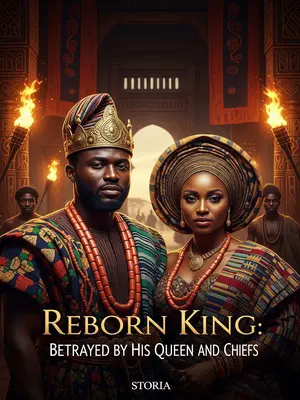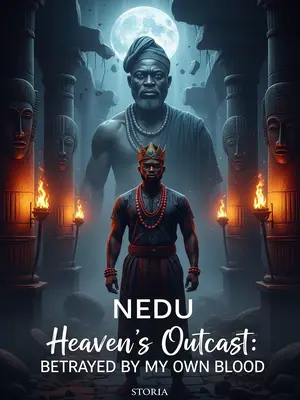Chapter 3: The Battle of Ajegunle
---
## 2. Elite vs. Elite: Leopard Guard vs. Egba Warriors
Now, Adeyemi prepared to meet Okechukwu’s Umueze army for one big battle at Ajegunle—the west gate of Umunna. If they could take this place, Umunna would be open.
Ajegunle itself was thick with the smell of wet grass and burning wood. Traders watched from behind tree lines, clutching their children, waiting to see which way the river of war would flow. Priests sprinkled salt and kolanut at crossroads, praying for their own survival.
Adeyemi was full of confidence.
He went round his camp, cracking jokes with his closest men. "Tonight, pounded yam go sweet pass for Oyo camp!" he boasted. Women sang praise songs as he passed, and even the new recruits straightened their backs, hoping to catch his eye.
On the thirteenth day, after afternoon prayers, dark clouds covered everywhere, heat choking. Oyo and Umueze armies faced each other outside Ajegunle. Okechukwu came with thirty thousand strong men to support him. Both armies were about a hundred steps apart, flags flying, tension everywhere.
It was as if time itself paused. The oracles were consulted, and the babalawo warned, "Today, no carry charm wey you never test." The wind carried the scent of fear mixed with the boldness of men who had nothing left to lose.
The Oyo vanguard was Kolapo—the same general whose horse Okechukwu collected for his nephew. Adeyemi put him at the front, to mock Okechukwu.
Kolapo’s eyes glinted with old pain, his grip on his spear tight like a python coiled for strike. He spat to the ground, muttering, "Today, I go take back wetin dem steal from me."
He remembered the day Okechukwu took his horse, the shame burning hotter than the Ibadan sun. The laughter from the camp, the way even small children pointed and whispered—Kolapo’s pride had suffered, and today, he would collect his due.
Battlefield quiet like grave, everybody waiting.
Even the insects seemed to stop. The kind silence that makes old women draw their wrappers tighter. The warriors' hearts beat so loud, it could have been a second drum in the air.
Suddenly, clouds opened, sun shone directly on Okechukwu’s side.
Some said it was a sign from the gods; others just squinted and drew their weapons closer.
Time don reach.
The air itself seemed to vibrate as Adeyemi raised his hand. All around, warriors shifted, fixing their charms and tightening the knots of their wrappers.
Adeyemi gave the signal. Kolapo held his breath, shouted one big shout, and Oyo army rushed forward. Okechukwu just laughed, ordered his men to fight back. Both sides clashed, began serious fighting.
It was madness. Spears clanged against shields, the smell of sweat and blood mixing with the crushed leaves. War cries filled the sky. Women from nearby towns heard the echoes and hid their children, whispering prayers.
The clang of metal, the sting of sweat in his eyes, the sour taste of fear on his tongue—Kolapo pressed on, fighting as if all the shame of yesterday was burning behind every strike.
Under Oyo wahala, Okechukwu’s men began to scatter. After all, Adeyemi’s soldiers were no small boys. Kolapo, with his big spear, was scattering enemies like spirit entered him—nothing could stop him.
He fought like a man possessed, roaring with every swing. Enemy warriors fell before him, and his name became chant: "Kolapo! Kolapo!" The old women at the camp kitchen beat their pots, celebrating every enemy that dropped.
Adeyemi, watching from a small hill, just smiled.
He raised a calabash to his lips, drinking water as calmly as if watching a wrestling match. With respect, he poured a libation to the earth for fallen warriors before sipping, honouring those who had gone ahead. His heart danced with pride, sure of a quick victory. The Four Pillars gathered behind him, nodding, sharing kola nut.
Victory seemed sure. But sharp sharp, everything changed.
Just as the palm wine was about to be poured for victory, a cold wind swept through, and the very air trembled with something dark.
Suddenly, one group of soldiers with heavy armour rushed out from Okechukwu’s men. All of them wore proper iron-plated armour—shields covering chest and back, shining like mirror.
The sun caught their armour, making them look like Sango’s own children, thunder in flesh. The Oyo front line staggered at the sight, and even Kolapo paused for one heartbeat.
All of them raised swords together, charging Oyo army like iron demons. Formation tight, swords moving together—they were like one killing machine.
It was a sight that would live in the dreams of all who survived. The ground shook with their march, dust rising in their wake. Children hiding in the bush later swore they saw spirits in iron.
Oyo soldiers tried, but for sword, armour, and discipline, they no reach. Their weapons no dey enter, but Leopard Guard could cut person with just one strike.
Blood splattered the ground. The Leopard Guard moved in silence, their eyes dead cold. Oyo men began to fall back, the earth drinking their sweat and blood.
"Leopard Guard warriors!" Adeyemi shouted, as cold sweat began to gather in his palm.
His voice cracked through the chaos. For a moment, fear touched even the bravest. Drummers at the rear doubled their beat, desperate to keep Oyo spirits from breaking.
The Leopard Guard were the Oba’s personal warriors—correct men from Benin, trained well, given the best weapons, and had seen many fights. They were the best.
Stories of their training passed from mouth to mouth—how boys became men by wrestling leopards, how their ogas could walk through fire without flinching. In every festival, their names carried weight.
As they attacked, it was like flood, like fire—anywhere they reached, Oyo soldiers fell back.
The ground became slippery with mud and blood. Even the birds abandoned their perches, flying far to escape the madness. If you listened, you could hear the spirits sighing in the wind.
Situation began to spoil. Adeyemi’s confidence began to shake. It looked like he could lose to this “Old Masquerade”? God forbid!
He gritted his teeth, his eyes wide with a new kind of fear. For the first time, he muttered, "Sango, do not disgrace me today."
In the heat of the wahala, Adeyemi himself led a charge. With about one thousand of his best cavalry archers—his Egba Warriors—all of them in black armour—they rushed to attack the side of the Leopard Guard.
The ground shook with their coming, hooves thundering, arrows ready. The Egba Warriors shouted their own war cry: "A ki i f’egba s’ako, a ki i f’egba s’osi—We do not turn left or right in battle!" Their mothers back home threw palm oil into the fire, praying for their safe return.
Till today, people who know war still talk about these black-armour riders as one of the strongest armies in West Africa. In history, they called them Egba Warriors—Adeyemi’s own personal men.
Griots still sing of their bravery. Their black armour became fashion for young boys who want to look brave, and even now, some elders keep Egba helmets on their shrine as symbol of protection.
Adeyemi and his Egba Warriors stormed the battlefield like thunder.
You could smell the sweat, hear the shouts, feel the ground rumble as if Oya herself was riding with them. Children later pretended to be Egba Warriors in their games, running barefoot through the dust.
Their arrows fell like rain, the sound loud. The heavy arrowheads struck the Leopard Guard’s armour, some even entering the small space at the neck or face, bringing down the elite guards.
Some men wailed as their friends fell, the iron-tipped arrows finding the soft parts. For the first time, the Leopard Guard hesitated, their formation bending like palm tree in heavy storm.
But Leopard Guard men no dey fear die. They fought to the end, no gree. Oyo foot soldiers nearly scattered finish.
The earth drank their blood. Still, the Leopard Guard pressed forward, the rhythm of their swords cutting through hope. Oyo men prayed, some biting their charms, others shouting names of their mothers.
Adeyemi began to fear.
The prince’s hands trembled as he drew his next arrow. He looked to the sky, hoping for sign, even as the smoke of battle rose up, mixing with his doubts.
He rushed to the front, carrying a big bow as tall as a man. The arrows he shot were double the size of normal ones, the power enough to fear person.
His warriors cheered, seeing their prince refuse to hide. The elders back at the camp started new prayers, fearing for the life of their future king.
The fight between Egba and Leopard Guard was sharp spear versus strong shield—serious, bloody fight.
Clash after clash, the gods themselves must have covered their eyes. The air rang with pain, the land soaked in red.
At last, after many rushes and arrow rain from the Egba Warriors, the Leopard Guard began to slow down.
Some dropped to their knees, their shields dented, their eyes glazed. The Oyo front line surged, hope rising like sun after long rain.
When Okechukwu saw this, he ordered retreat, carrying his men back into Ajegunle.
He beat his staff on the ground, signaling with a special horn. The retreat was disciplined—no panic, but still, the shame was heavy. Okechukwu’s face was stone as he led his best men away.
After the fight finished, Adeyemi’s chest swelled. He believed victory was close.
He ordered drums of celebration, poured out palm wine for the living, called his war chiefs together for feast. He thought, "Old Masquerade don see pepper today."
But he didn’t know that Okechukwu had already seen his weak point.
The wind that night carried warning, and the old women in the camp, while washing blood from their sons’ wrappers, sang low songs to keep the spirits of the dead calm.
